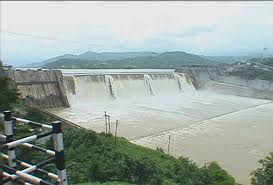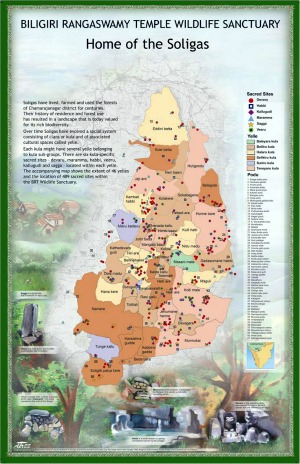/topics/citizens-rights-and-duties
Citizens' Rights and Duties
A plan for resolving Mullaperiyar conflict in Kerala - Forum for Policy Dialogue on Water Conflicts in India
Posted on 31 Dec, 2011 12:56 PMGuest Post: Forum for Policy Dialogue on Water Conflicts in India
The Forum for Policy Dialogue on Water Conflicts in India has been closely following the Mullaperiyar issue for the last several years. The polarisation of views around the Mullaperiyar has hardened over the years. The Tamil Nadu government insists that the Mullaperiyar dam is safe and that the water level must be maintained at the maximum level as per the agreement. The Kerala government insists that a new dam, downstream of the present dam, must be built because the present dam is unsafe. The recent tremors with their epicentres near the dam and the already diminishing trust and rising fears and apprehensions on both sides have created a grave situation needing immediate intervention and your initiative in getting the two parties together is a welcome move.
National Alliance for People s Movements condemns arrest and harassment of anti-dam protesters in Assam
Posted on 28 Dec, 2011 12:10 PMContent courtesy: National Alliance for People's Movements
On the 26 December, 2011, at 2:15 am, Assam Police in collusion with other security forces swooped down on the protesters at Ranganadi who have been blockading the Highway since December 16 and thwarting state’s attempt to carry turbines and dam materials to project site of Lower Subansiri Dam. Nearly 200 people have been arrested and earlier also security forces have been harassing the protestors. In past too, Krishak Mukti Sangram Samiti fighting against the big dams on Brahmaputra have faced government’s ire and often been attacked and jailed. NAPM stands in solidarity with KMSS and other students groups of the region who have been consistently opposed to the big dams in highly sensitive seismic zone. We condemn the sustained action and harassment of KMSS and their activists and targeting of Akhil Gogoi for constantly opposing the destructive development policies and corruption of the government machinery.
Life, livelihoods, ecosystems, culture: Entitlements and allocation of water for competing uses
Posted on 27 Dec, 2011 05:10 PM This report has been prepared by the members of the working group set up by the Forum for Policy Dialogue on Water Conflicts in India on the issue of “Entitlements and allocations for livelihoods and ecosystem needs". The introductory chapter sets out the context of the report. The immediate context is the work of the Forum over the last 4-5 years, and the learning that this particular issue leads to many water conflicts in India.
This report has been prepared by the members of the working group set up by the Forum for Policy Dialogue on Water Conflicts in India on the issue of “Entitlements and allocations for livelihoods and ecosystem needs". The introductory chapter sets out the context of the report. The immediate context is the work of the Forum over the last 4-5 years, and the learning that this particular issue leads to many water conflicts in India.
Yamuna-Elbe - A public art and outreach project at the Yamuna riverscape in Delhi launched on 5 November, 2011
Posted on 18 Dec, 2011 02:02 PMGuest post by: Amita Bhaduri
The public art outreach project was organized by the Max Mueller Bhavan in association with the Government of Delhi and the Goethe-Institut (Hamburg, Germany) as a part of the “Year of Germany in India” programme opened on 5th of November, 2011. The art exhibition which continued till the 19th of November co-curated by artist Ravi Agarwal who is also a practicing environmentalist (Director, Toxics Link) along with German artist, Till Krauser attempted to create a pulsating synergy between the Yamuna and Elbe rivers.
 Gigi Scaria’s - The fountain of purification
Gigi Scaria’s - The fountain of purification
Photo courtesy: Rocky Thongam
This is a 24 ft installation representing a four storey apartment complex that draws Yamuna water, purifies it at various levels and dispenses it from the top in the form of a fountain.
Encephalitis deaths in India - The same story of poverty, neglect, disaster and disease, how long will this continue ?
Posted on 02 Dec, 2011 10:15 AMGuest post by : Aarti Kelkar-Khambete
Trouble in Tigerland: Why conservation efforts continue to fail
Posted on 30 Nov, 2011 11:53 AMGuest Post: Nitin Rai, Ashoka Trust for Research in Ecology and the Environment (ATREE)
Drawing upon his experience working with the Soligas who live within the Biligiri Rangaswamy Temple Wildlife Sanctuary, Nitin Rai talks about the ‘wilderness’ myth and explores the origins and impacts of the belief that people and animals cannot co-exist.

Hue and cry for drinking water - Major struggle for nature’s call - A study by Udayvani and Arghyam
Posted on 22 Nov, 2011 04:32 PMThis study by Udayvani and Arghyam describes the findings of case studies undertaken by Udaywani to get a clear picture of the drinking water and toilet facilities in 8 Gram Panchayats of the 6 Districts of Karnataka following the ASHWAS survey conducted by Arghyam that included a survey of Household Water and Sanitation in 172 Gram Panchayats across 28 districts of Karnataka (all except Bangalore Urban).
Workshop on rainwater harvesting in Meerut’ - Janhit Foundation's e-newsletter of March 2011
Posted on 11 Nov, 2011 09:29 PMContent courtesy: Janhit Foundation
Rainwater Harvesting Users and Trainers' Manual by the KUIDFC
Posted on 10 Nov, 2011 12:03 PMAdequate potable water supply to the community has become an uphill task to the administration both in rural and urban areas. This is because of dwindling groundwater sources, over-extraction, pollution of surface water bodies, negligence of fresh water bodies, poor water management, etc.
Interstate river water disputes (IRWD) act (1956) and its legal provisions
Posted on 09 Nov, 2011 10:01 PMThis paper elaborates the techno – legal aspects of Interstate river water disputes act – 1956 which was enacted to resolve the water disputes among the basin states of an interstate river / river valley. This Act’s main purpose is to protect the interests of a downstream state when water resources available in an upstream state are put to additional use.
Interstate River Water Disputes Act – 1956 (IRWD Act) was first enacted on 28th August, 1956 by Indian parliament on the eve of reorganization of states on linguistic basis to resolve the water disputes that would arise in the use, control and distribution of an interstate river or river valley. This Act further has undergone amendments subsequently and its recent amendment took place in 2002. It also validates the previous agreements (if any) among the basin states to harness water of an interstate river/ river valley.





